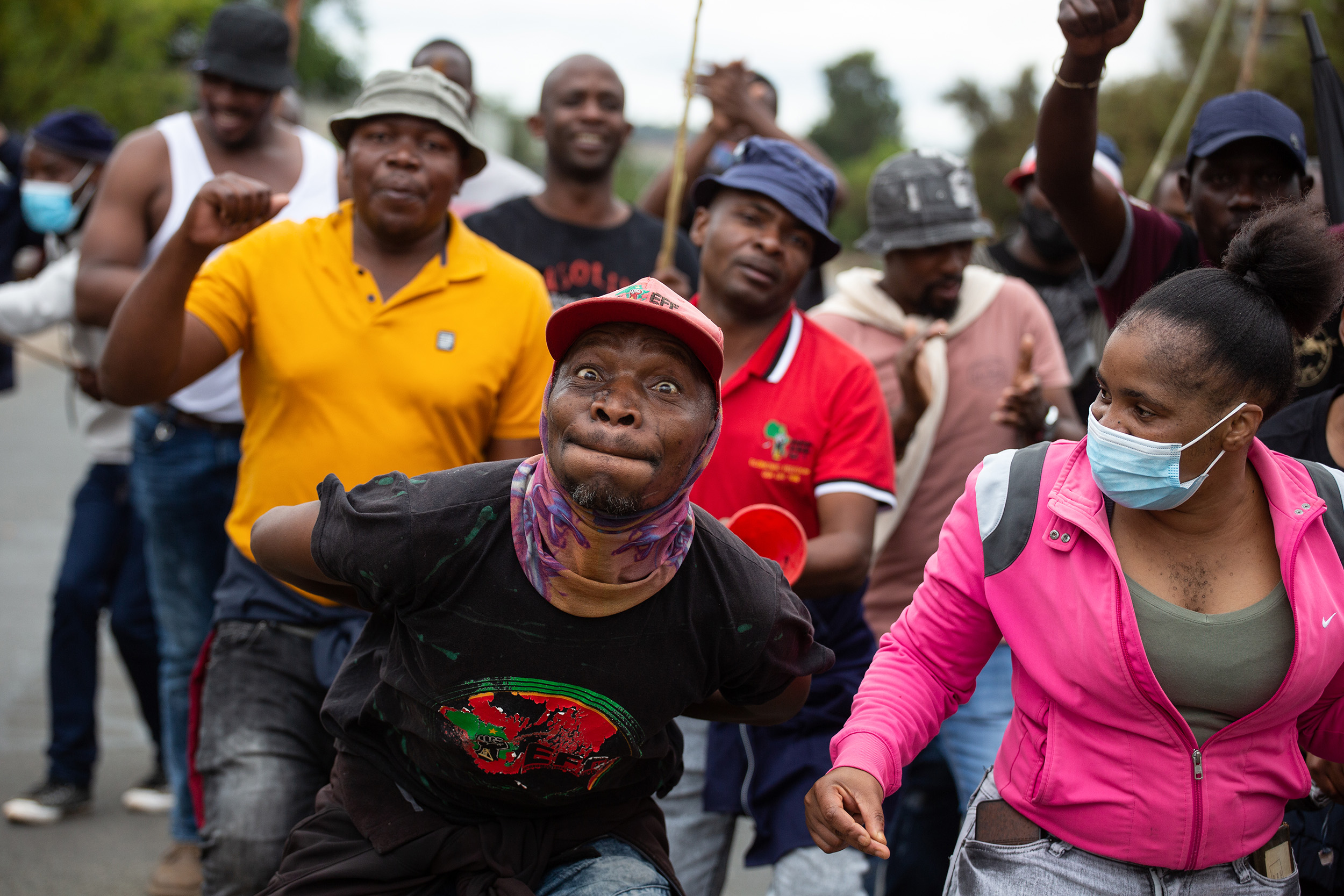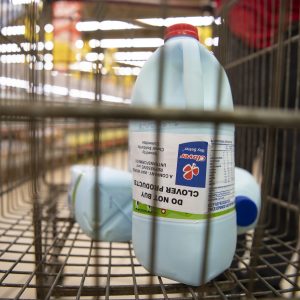Clover workers strike against long hours and less pay
The dairy company wants to retrench workers, move to a 12-hour day six days a week and ignore public holidays. Unions also fear it will close factories and pivot to distributing Israeli products.
Author:
23 November 2021

The Food and Allied Workers Union (Fawu) and the General Industries Workers Union of South Africa (Giwusa) began an indefinite strike at Israeli-owned dairy giant Clover on 22 November over the company’s threats to make fewer workers work harder for longer hours and less money. The strike got underway at Clover factories in Clayville, Durban, Gqeberha, Polokwane and Cape Town.
Giwusa’s general secretary John Appolis says Clover told the unions three months ago that it intended to save R300 million on labour costs by retrenching 1 000 workers and introducing a six-day work week with compulsory work on public holidays. Clover also intended to lengthen the work week by making employees work a long 12 hour-day, instead of a nine-hour day, without overtime.
“They indicated that there are too many workers at Clover, they are too expensive and they are too inflexible. Clover says they found that workers are earning 20% above the market rate – whatever that means – and therefore they want to impose a wage reduction of 20%,” says Appolis.

Milco SA, which is owned by the Israeli Central Bottling Company, purchased Clover in 2019. Giwusa and Fawu say the Israeli company operates in Palestinian territories occupied by Israel and is “complicit in the human rights abuses and oppression of the Palestinian people”.
As a cost-cutting measure, Clover wants to reduce the number of van assistants from two to one per truck. “This may sound insignificant but it is extremely heavy work, so if you make one driver and one assistant offload a 12-ton truck, you won’t find many workers lasting long in terms of their health,” says Appolis, adding that even in the current system, many workers report back and shoulder injuries.
Democratic participation of workers
The dairy giant announced in June that it was closing its Lichtenberg factory in the North West because the Ditsobotla municipality had failed to provide reliable services to the plant.
But Giwusa says Clover has now threatened to close down the Heilbron and Frankfort factories in the Free State too. Giwusa president Mametlwe Sebei says his union believes Milco will hollow out Clover until it ceases manufacturing altogether and becomes nothing more than a distribution company for dairy product made in Israel and in Palestinian territories occupied by Israel.
“They are closing factories in the interior and placing their main operations on the ports where they will receive most of their Israeli products. We think this is just the beginning of even more brutal restructuring,” says Sebei.
Fawu national organiser Cynthia Joyce says closing Clover’s inland factories would affect hundreds of workers, who would lose their jobs.
Related article:
Giwusa deputy general secretary Charles Phahla says that workers were also due an increase, but Clover began by offering them 0%. After mediation by the Commission for Conciliation, Mediation and Arbitration (CCMA), it upped its offer to 4.5%. “We feel we cannot settle wages on one hand and have a section 189 [Labour Relations Act restructuring notice] that talks to a 20% reduction of salary on the other hand,” Phahla says.
A solidarity meeting was held in Johannesburg on 18 November where the Palestine Solidarity Alliance pledged to support the unions in organising a boycott by consumers of all Clover products while the strike is on.
“We are also calling on the government to take over Clover SA with democratic participation of workers in the decision making. We are demanding a meeting with the minister of trade, industry and competition, Ebrahim Patel, where this demand is to be tabled,” says Joyce.
Patel’s spokesperson Bongani Lukhele did not respond to questions sent on 19 November by the time of publishing. Johann Vorster, Clover CEO, would not say whether the company was under instruction from Milco to save R300 million by cutting back on the costs of workers and working conditions. He also would not say whether Clover would agree to back the unions in asking Patel for assistance in divesting Clover from Milco and turning it into a state-owned enterprise.

Vorster said the 12-hour shifts were introduced several years ago and were allowed by the Basic Conditions of Employment Act, with workers doing four 12-hour shifts and then having two days off. He said Clover was restructuring in line with section 189 of the Labour Relations Act, aiming “to consider all possible avenues to minimise potential retrenchments”. The CCMA has been facilitating the process which is being run in accordance with all legal requirements and concludes on 25 November 2021.
“The decision to restructure the business was not arrived at lightly … Clover’s business has been subject to a difficult trading cycle for a number of years, where costs have generally been rising above inflation and consumer spending has been negatively impacted by poor economic growth and increasing unemployment. Covid-19 has added to these pressures and created much uncertainty, specifically around the economic outlook,” Vorster said.
Vorster added that Clover expected one driver and one assistant to offload at least 5.5 tons in a 9-to-12-hour delivery cycle. “This has been in Clover at some branches for various years,” he said.
Giwusa members last went on strike at Clover in October 2020, when police shot at workers with rubber bullets. Union member Khilson Manaka died on the first day of that strike after being run over by a car in Clayville, Johannesburg.

